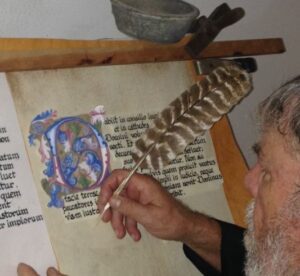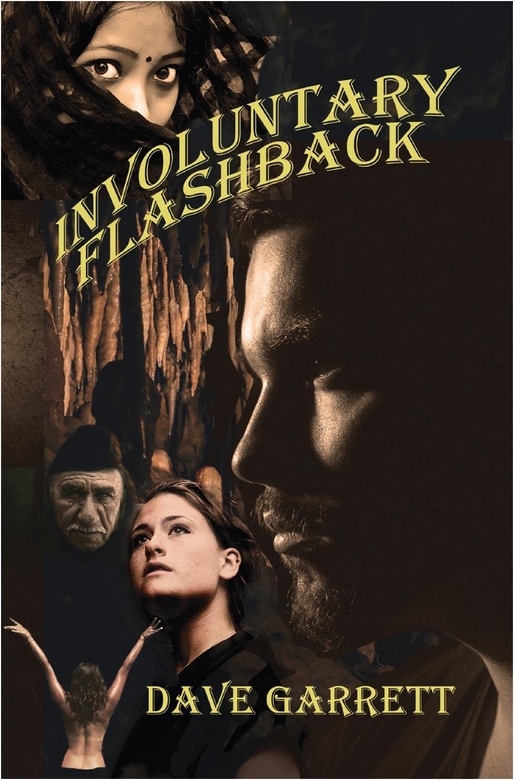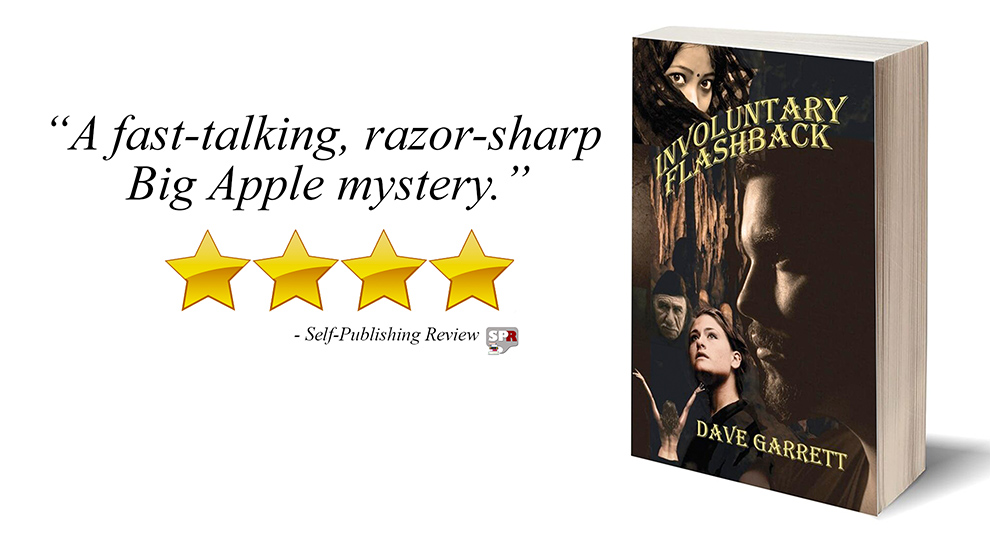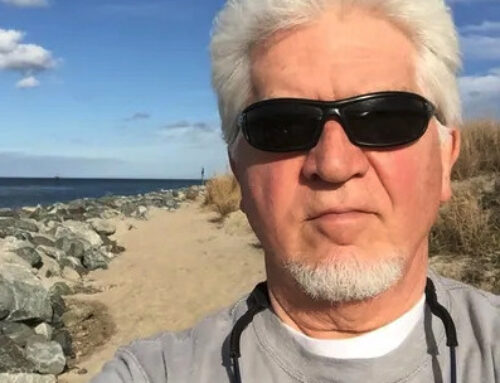 Dave Garrett is a 1966 Ursinus College Graduate, majoring in Chemistry. He served in the United States Marine Corps as a Combat Engineer Officer with the West Pac Ground Forces, 1967-1968, and from 1970–1994 as a Special Agent for the Federal Bureau of Investigation. Primary duties involved Foreign Counterintelligence Matters – Soviet Union in the New York, Newark Field Offices and FBI Headquarters as a Supervisor of Foreign Counter Intelligence Operations. Following retirement, he formed his own Private Investigations Firm.
Dave Garrett is a 1966 Ursinus College Graduate, majoring in Chemistry. He served in the United States Marine Corps as a Combat Engineer Officer with the West Pac Ground Forces, 1967-1968, and from 1970–1994 as a Special Agent for the Federal Bureau of Investigation. Primary duties involved Foreign Counterintelligence Matters – Soviet Union in the New York, Newark Field Offices and FBI Headquarters as a Supervisor of Foreign Counter Intelligence Operations. Following retirement, he formed his own Private Investigations Firm.
He studied the Russian Language at the Defense Language Institute, and figure sculpture and bronze casting techniques at the New Orleans Academy of Fine Art. Aside from a newfound passion for writing fiction, he maintains diversified interests in design carpentry, cabinet making, culinary arts, sculpture, bronze casting, ancient manuscript art, agriculture, and ancient history. He resides in rural Covington, Louisiana with his wife.
Involuntary Flashback is his debut published novel. Cudgel of the Naijonites, a sequel, awaits publication and will be followed by Cudgelled Full Sore, soon to be completed.
Tell us about your book.
An evil megalomaniac Jihadist, during his early student years as a field archeological assistant, in 1972 singularly discovered an abandoned cavernous site in Morocco’s Atlas Mountains, which predates Earth’s hominid emergence. It contains a still functional infinitesimally advanced power source needing no fuel replenishment. Envisioning the establishment of a world-dominating Caliphate using this ultimate power source ensconced within a secret location, he murders his professor and initiates his first of three incremental measures—accumulate wealth with the establishment of an exclusive secret sex for pay club catering well positioned perverted clients and develop a small armed force to be applied toward implementing his second stage plan.
Faced with a taboo cohabitation and spurious charges of communist collusion, Rod Weyhengrubber resigns from the FBI and forms his own Private Investigation Firm. His recruited team, aside from the myriad of routine PI cases, focuses on the largely ignored but overwhelming number of New York’s missing person cases involving family fractured juvenile runaways and minor film actresses and extras. His team suspects that some are being systematically targeted and abducted for sexual exploitation in foreign venues. The Nineveh Foundation for the Arts, an Iraqi subsidiary of Nineveh Oil, is determined to be a cover for a corrupt organization actively engaged in kidnappings. Stalking his intended targets. the CFO, botches a grab in Eastside Manhattan which results in a bloody shoot out, ultimately killing the CFO, his hired thugs, and Rod’s paramour. One associate is seriously wounded, but two of his targeted employees, are successfully snatched.
Denied aid by an indifferent FBI and New York Police Department, who rule the matter a mob-hit, Rod goes rogue. By trolling within the ruthless wake of murder, fratricide, and deviant acts, in order to safely locate and liberate sexually exploited abductees, he is aided by a Gypsy clairvoyant, who divines the remote location of a secret pay for play club tucked within the eastern range of Morocco’s Atlas Mountains.
Never out-paced from subversive plotting or meddling in a crisis, the KGB independently learns and grasps the significance of a sophisticated advanced power source developed by ancient technology which sustains the club’s structure. But with details furnished by Rod and independent source information, the CIA has placed the matter on the front burner. Both agencies engage in clandestine tactics to outflank one another with intent on a surreptitious power source grab. A chaotic three-way armed conflict postures, threatening global escalation. To add further chaos to the mix, Rod is told by Aurore, a mysterious lady from the shadows, that the place must be destroyed, since Earth’s governments are incapable of peacefully managing such power.
 Why did you want to write a book?
Why did you want to write a book?
In the mid-1950s, my grandfather related his life experiences as a child laborer in an Eastern PA coal breaker circa 1890-96. It left a lasting impression, but at age 11, I did nothing except to retain the details in memory. With the birth of my son in 1981, my oral bedtime stories embellishing my grandfather’s youthful ordeal along with his emergence as a heroic drifter captivated him to the extent my tales infused with historical events prompted me to consider writing a book along the lines of a YA fictional picaresque adventure. Approximately 50 pages were handwritten, but stalled with the reality to do the book justice, considerable research was needed. An employment transfer with relocation demands forced a suspension of effort.
Quite by happenstance, in 2017, I clicked on a historical video short filming the breaker boys at work under gruesome conditions, which accurately paralleled the description given to me in 1955 showing children, mostly boys 8-15, picking slate from coal. Immediately with a glass of red wine in hand I went to my file cabinet to find my notes written in 1986. As I searched the file drawer (and this is no lie), my glass tipped over onto the sought after folder, saturating my past efforts. Thus at age 75, I took initiatives this time with MS Word, and slowly at first, but over the course of a year penned what will become the base for at least four related novels – yet still plagued with the knowledge that research and on-site visitations would be required before I could amend and supplement manuscripts for publication.
A close friend noting my reticence to go forward, suggested that as a way to get my feet wet in the literary world, I write a fiction novel about my New York experiences with the FBI, which would leave little requirement for research. Within six months I had a rough manuscript for Involuntary Flashback – self published in late 2022. Not the book I intended to quell the notion to honor my grandfather, but a novel nonetheless to prove I can and whose ordeal with the extended publication process has honed my skills to be applied to that dormant manuscript, which I intend to publish before I’m called.
Why did you choose to self-publish?
Ignoring the advice of an experienced writer, who said I would regret dealing with manuscript/query letter submissions to literary agents, I immersed myself in that frustrating process for the greater part of a year, even contracting professional advice on submission form and content to find that key to the invisible barrier. Fortunately, my former employments created a pachyderm texture to my personality enabling dejection to be replaced with cynical amusement when over 75 query submissions and their boilerplate rejection letters spewing “no fit” quips appeared. Wasted time caused me to explore self-publication. For reasons of having a deficit in computer skills, the editing and formatting requirements prompted me to contract Dorrance Publishers to handle aspects that would normally be undertaken had a literary agent snared a major publishing company.
What tools or companies did you use, and what experience did you have?
I did mention that I paid Dorrance to facilitate the self-pub process for IF. My entire manuscript was produced using MS Word 10 which was submitted to Dorrance Publishing Company. Dorrance did read my book prior to acceptance for service, however, editing for plot, style, characters, etc. was left to my own devices. The full gamut of proofreading and formatting was, however, given the SPR style workover along with a book cover and limited promotional input. Costs were relatively reasonable but took months longer than projected. Without them at the time, arrangements for outside editing would have been difficult.
For me, the critical tool in creating IF was personal recollection. Because the Manhattan venue is in perpetual motion, presenting an action thriller in the 1970s to 80s demanded accuracy and fortunately I still have acute recall, but I nonetheless undertook meticulous research to corroborate through the various sources available on the internet. Such elements as geographical period profiles, maps, and historical calendars. Foreign language clips were researched and cross-examined for accuracy, and no shifting of events for literary convenience was undertaken, ensuring any buildings, businesses, and roads described had period accuracy – for example, the fictitious November ’79 shootout location on 63rd and York, complete with FDR construction, was reconstructed from memory.
Would you self-publish again?
No contest on that one. I will never ever consider going the conventional literary agent route, a process bent on self-inflicted obsolescence. I currently have a completed sequel to IF with the trilogy almost complete. Come the new year, I will probably take initiatives to publish the sequel to IF and will likely resort to independently contract outside sources to arrange editing and formatting while exploring a self-designed cover. Cost cutting motives will also be a consideration.
What do you think are the main pitfalls for indie writers?
The same for any indie:
1) Failure at writing a captivating storyline appealing to a segment of readers.
2) Being able to maintain a positive outlook even with negative critiques.
3) Lack of life experiences can be limiting for younger writers, because a “been there and done that” asset adds immeasurability to character development and diversity in formulating plots with intricate conflicts, loves, military service, combat experience, job versatility, travel and posting, and diversified interests.
4) Understanding the management of the publication process.
5) Thinking editing and formatting do not require outside professional reviewers.
What tips can you give other authors looking to self-publish?
Without any hook or other advantage, abandon the notion you will see your manuscript in the hands of a major publisher, along with a fat check. Go self-publish – this is the literary world’s future domain.
What was your steepest learning curve during the publishing process?
Rage control. Learning that my PC is not a living entity and understanding that shouting, throwing things, and cussing over mysterious deletions and missing pages is not her fault.
As a writer, what is your schedule? How do you get the job done?
I have no schedule. Being retired I have an advantage to pretty much do what I want to do when I want to do it. Years of superficial deadline-demanding caseloads for me dampened enthusiasm, but now free from the necessity to couple work to a fixed schedule, I find I apply a more intense posture, creating narrative and dialogue almost as if I’m reading a page-turner where my writing is actually turning the pages to eagerly find out what the recon neurons have encountered (if that makes any sense).
I also spend more extended periods writing or editing my product all the while fixing current or future plots to be applied in my sequels. Though never keeping score, some days I may write 600 words another day 2,000 pages, other days planting potatoes or harvesting turnips. Currently, I am working on the Atticus app which is useful for manuscript organization and formatting enabling the creation of a manuscript more suited for outside review and editing. It also has another tools feature setting up a comprehensive organized author schedule – it will be of no use to me.
How do you deal with writer’s block?
Comes upon me all the time. I have 80 years behind me, but my incidents of block are not the stuff senior moments are made of. What personality disorder spawns them I don’t know, and I don’t care to go there to find out. I even experienced them during college final exams over sixty years ago. Mine come and go with no fixed time – rarely more than a week – two to three days on average. I’m in one right now, in fact. Not infrequently the hot flash of creativity reemerges at three a.m., driving down the highway, or anywhere except facing a blank screen, and otherwise the spell is usually shattered by an outside keyword utterance from an outside source. During the downtime, I do other things like re-editing, or filling out this author interview template. Overall, it’s not a problem.
Tell us about the genre you wrote in, and why you chose to write this sort of book.
IF is a historical action thriller that evolved quite by accident, as I planned to keep things mostly in Manhattan where my five-year stint as an FBI agent exposed me to a depth of resources allowing me to expand on the criminal issues with humorous satirical undertones. For my antagonist bad guy image, I arbitrarily designated a citizen of Iraq from recollections of my Dearborn, MI days dealing with the large Middle East population, and I keyed into a previous read of the Assyrian, and the Nineveh Oil conglomerate was born. This led to an international relocation where I decided to incorporate my exposure to prostitution cases and move the criminal venue to a secret sex slave club located in Morocco’s Atlas Range.
So, from a projected humor-ridden Gang that Couldn’t Shoot Straight historical comedy scenario, my pen diverted to an adventure thriller culminating with a three-way military clash between the KGB, CIA, and a cadre of revolutionary-bent misfits and stylized Janissaries exposed by a Protagonist, fired by the FBI, who partnered with a Jersey Shore Gypsy fortune teller. All this and more without an outline or a predeveloped plot, yet all the while sequenced to conform to the progression of historical events culminating with the Israeli raid on Iraq’s nuclear development facility in Osirak, June 7, 1981. Not the way to write a novel, but…chert voz’mi…? The sequel and my current effort are likewise created. Being regarded by some as obtuse, my poor keyboard doesn’t know where she’s going until I get there.
Who are your biggest writing inspirations and why?
As a youth to the present, I was always captivated by tales of lost civilizations and the trekking by adventurers exploring the unknown as well as the underdog combating injustice. Robin Hood, Ivanhoe, Edmond Dante, Alan Quartermain, Taita the Slave, D’artagnan, Thorn, and Mixtli are among the many protagonists who became alive through authors like Scott, Dumas, Haggard, Smith, Jennings, and many others.
How do your friends and family get involved with your writing? What do they think of your book?
They (wife and son) let ‘Ole Grumpy alone, and run away when I ask them to read a small segment for clarity purposes. Friends show up when I have a free published copy.
What are your plans now your book is published?
Complete the trilogy and work on Breaker Boy, a four-volume picaresque historical novel embellishing through fiction, the life of my grandfather.
Author Links
Get an Editorial Review | Get Amazon Sales & Reviews | Get Edited | Get Beta Readers | Enter the SPR Book Awards | Other Marketing Services























Leave A Comment